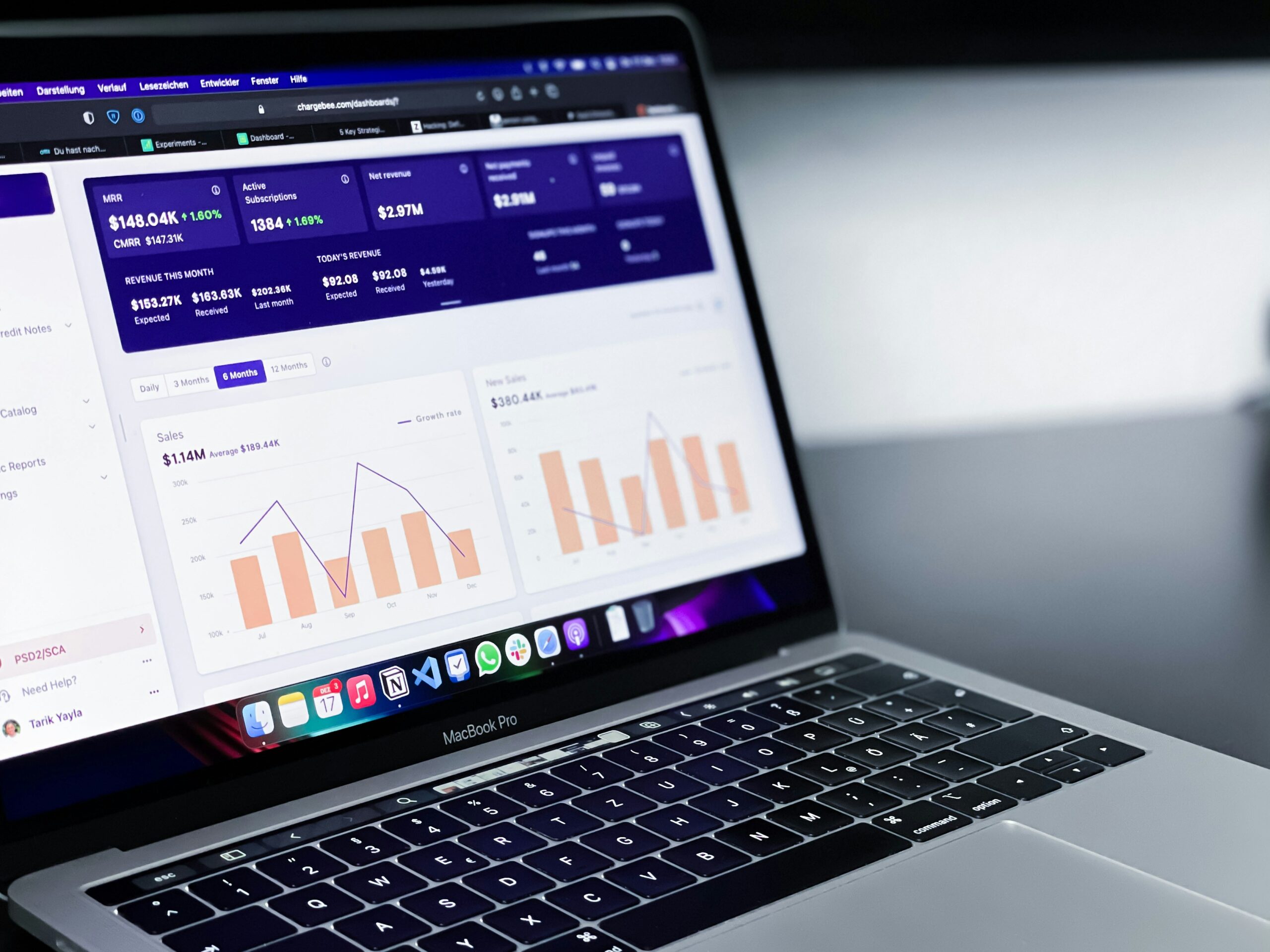
In a market where innovation distinguishes leaders from the pack, Artificial Intelligence (AI) emerges as a transformative force in reshaping marketing strategies.
Navigating through the AI landscape can enhance a company’s ability to understand consumer behavior, refine lead generation, and elevate overall customer engagement.
Integrating AI into a marketing plan does not merely streamline workflow—it breathes life into every aspect of digital marketing, from personalized email campaigns to dynamic pricing strategies.
Keep reading to gain a foundational understanding of how AI can bolster your marketing approach, delivering not just analytics but actionable insights that could set your brand apart.
Key Takeaways
- AI Integration Into Marketing Enhances Lead Generation and Customer Engagement
- Data Quality and Privacy Are Critical for Effective AI Marketing Strategies
- Personalization Driven by AI Can Significantly Improve User Experience and Loyalty
- Metrics Are Essential to Measure the Impact of AI on Marketing Outcomes
- AI Insights Allow for Continuous Adaptation and Optimization of Marketing Strategies
Understanding AI and Its Role in Marketing

The introduction of Artificial Intelligence into marketing has not just provided a competitive edge but transformed the entire landscape of brand-consumer interactions.
As marketers seek to understand and leverage this dynamic tool, breaking down the fundamentals of AI becomes a pivotal starting point.
Grasping AI’s core concepts equips professionals with the means to forecast trends, optimize user experiences, and craft personalized campaigns.
Within the evolving landscape of AI in marketing, key areas emerge where its application not only propels marketing strategies forward but also automates complex processes, offering insights that were previously inaccessible or labor-intensive.
This section explores the integration of AI into various marketing facets, from enhancing lead generation to fine-tuning pricing strategies, thereby offering a texture of myriad possibilities that AI unfolds for strategic marketing initiatives.
Breaking Down AI Basics for Marketers
Embarking on the journey of integrating artificial intelligence into a marketing strategy begins with a critical assessment of its foundational elements. Marketers must navigate through the array of AI tools, understanding algorithms designed to predict consumer behavior, automate content management, and streamline data analysis to enhance decision-making.
Embracing AI necessitates a nuanced comprehension of its capacity for natural language processing, machine learning, and sentiment analysis, which collectively serve to elevate the user experience. Professionals in the digital marketing sphere must align their objectives with the capabilities of AI to create strategies that resonate with the desires and behaviors of diverse consumer groups.
The Evolving Landscape of AI in Marketing
The integration of artificial intelligence into marketing plans signals a shift toward more sophisticated, data-driven strategies that resonate with today’s tech-savvy consumer. Savvy marketers recognize that, with AI’s ever-improving algorithms, they can refine their approach to lead generation and enhance the overall customer journey, leading to a significant uptick in consumer engagement and loyalty.
In this rapidly shifting domain, the interplay between AI and marketing extends to influencer marketing, video production, and comprehensive media management. Businesses that capitalize on these innovations achieve a substantial edge over the competition, fine-tuning their marketing strategies with unprecedented precision and tailoring personalized journeys at scale.
Key Areas Where AI Can Be Applied
Artificial intelligence finds its utility in various pivotal sectors of a marketing plan, each contributing to a robust strategy. Deploying AI for sophisticated data collection and analysis empowers an organization with strategic competitive intelligence, guiding product development and leading nurturing campaigns.
Moreover, utilizing AI-driven tools such as chatbots and automated email marketing enriches customer engagement, ensuring queries and communications are handled with efficiency. These AI enhancements to customer service magnify the potential for higher conversion rates and improved customer satisfaction.
Assessing Your Current Marketing Plan

Before an enterprise delves into the intricate world of Artificial Intelligence, a critical assessment of its current marketing framework is essential.
Anchoring this evaluation are key considerations; identifying the organization’s readiness to adopt AI, pinpointing specific marketing sectors ripe for AI enhancement, and establishing precise objectives for AI’s role within the broader marketing strategy.
Together, these actions form the bedrock upon which an AI-infused marketing plan is securely built, ensuring that the chosen AI solutions align seamlessly with the organization’s core objectives and capacity for technological adoption.
Identifying AI Readiness in Your Organization
Identifying whether an organization is primed to harness the power of Artificial Intelligence for its marketing endeavors is a critical first step. This begins with an honest evaluation of existing technological infrastructure, the expertise available among human resources, and the willingness to invest in new platforms.
For organizations eyeing a robust AI integration, the checklist below illustrates the fundamental readiness criteria necessary to ensure a smooth transition into AI-driven marketing efforts:
- Current tech stack capabilities and compatibility with AI tools
- Level of staff proficiency in data science and AI applications
- Financial readiness to support AI adoption and potential learning curves
- Organizational culture’s openness to adopt innovative marketing technologies
A thorough audit of these aspects will unveil not only preparedness but also areas necessitating development before embarking on AI adoption. This foresight is instrumental in aligning the marketing plan with the Transformative Nature of AI to generate optimal outcomes.
Pinpointing Areas for AI Integration
Shifting towards a marketing approach enhanced by AI requires careful identification of areas where its integration can bring tangible benefits. An essential part of this process is evaluating existing marketing channels like email marketing, social media engagement, or search engine optimization, to pinpoint where AI’s intelligent automation and data science capabilities can significantly enhance efficiency and effectiveness.
A thoughtful marketer should consider the demand and capacity for personalization within their customer base when choosing areas for AI improvement. Whether it’s improving product recommendations through deep learning or optimizing pricing strategies with dynamic pricing algorithms, the focus should be on selecting aspects of the marketing workflow where AI not only fits but excels. This ensures increased customer satisfaction and loyalty while reinforcing the brand’s competitive position.
Setting Goals for AI in Your Marketing Strategy
Establishing clear objectives for AI engagement in a marketing strategy is paramount for companies desiring a seamless integration of technology and marketing efforts. Goals must be specific, measurable, and within the realms of AI capabilities, such as improving customer experience through personalization or augmenting lead generation precision.
Goals set for AI within a marketing strategy should precisely mirror the brand’s overarching ambitions while remaining agile enough to adapt to the rapid advancements in AI technology. Whether the aim is to bolster consumer insights, enhance user experience, or streamline the efficiency of advertising campaigns, each objective should be a stepping stone towards a larger vision of innovation and growth.
Exploring AI Marketing Tools and Solutions

With the foundation laid for understanding the impact and potential of AI in marketing realms, the spotlight now shifts to the practical aspect of selecting suitable AI-infused tools and platforms.
Navigating through the plethora of AI marketing solutions available requires a strategic approach — one that aligns the organization’s unique marketing needs with the most effective AI technologies.
This next phase in AI integration involves an exploration of top-tier AI marketing platforms, a comparison of their applications across different marketing tasks, and guidance in pinpointing those AI solutions that will most proficiently underpin and drive your marketing objectives to fruition.
Overview of AI Marketing Platforms
Navigating the vast seas of AI marketing platforms can be a formidable challenge for any brand looking to integrate artificial intelligence into its marketing efforts. From Salesforce’s Einstein to Adobe’s Sensei, each AI marketing platform offers a unique blend of analytics, automation, and machine learning capabilities designed to enhance campaign performance and consumer experience.
Distinguishing among these platforms requires an in-depth analysis of their functionalities, assessing how they can optimize search engine optimization, personalize email marketing campaigns, and deliver predictive analytics for data-driven decision-making. Marketers must select a platform not only for its current competencies but also for its adaptability to future shifts in consumer behavior and technological advancements.
Comparing Top AI Tools for Different Marketing Tasks
Comparing diverse AI tools across various marketing tasks is akin to selecting the right instrument for an intricate symphony; each tool brings its flair and functionality. Determining the most effective solutions for content creation, lead generation, or customer retention hinges on their ability to align with specific marketing goals and the unique demands of a target audience.
The realm of email marketing, for example, offers distinct AI-powered tools that specialize in automating distributions and segmenting audiences to increase engagement rates:
- Marketo excels with its automated email marketing capabilities, streamlining workflow efficiency.
- Optimizely stands out in conversion rate optimization, personalizing content to enhance user experience.
- AI-driven platforms like Persado apply natural language generation to craft compelling copy that resonates with customers.
Monitoring these tools’ performance metrics forms the basis for an informed decision on which AI enhancements will best serve an organization’s broad-ranging marketing tasks.
Selecting the Right AI Solutions for Your Needs
Selecting the ideal AI solutions for marketing needs can be complex, as the right choice hinges on a brand’s unique challenges and objectives. Tailoring an AI strategy starts with recognizing the core areas where artificial intelligence can drive growth, be it through improved customer targeting or the efficiency of content distribution.
An organization’s success with AI pivots on choosing solutions that align with their specific marketing goals, taking into account the nuances of their industry and the sophistication of the market. Placing a premium on the scalability and customization of AI applications ensures that marketing strategies remain flexible and attuned to shifts in consumer preferences and behaviors.
| Marketing Challenge | AI Solution | Expected Outcome |
|---|---|---|
| Enhanced Lead Generation | AI-Enhanced CRM Platforms | Higher Quantity and Quality of Leads |
| Dynamic Content Personalization | Machine Learning Algorithms | Increased Engagement and Conversion Rates |
| Optimized Ad Campaigns | Predictive Analytics Tools | Improved Return on Advertising Spend |
Preparing Data for AI Implementation

As the groundwork for incorporating Artificial Intelligence into a marketing plan is established, attention must pivot to the underlying fuel of AI: the data.
Organizing marketing data forms the basis for AI’s effectiveness, where systems are only as powerful as the information they are fed.
Moreover, ensuring data quality and accessibility becomes critical, as clean, structured, and readily available datasets are essential for AI algorithms to operate with precision.
Brands need to navigate carefully, striking a balance between the desire for data-driven insights and the strict demands of data privacy. Navigating this delicate ecosystem with diligence enables companies to unlock the full potential of AI marketing while maintaining the trust and confidence of their customers.
Organizing Your Marketing Data
Before artificial intelligence can begin working its analytical magic, the prerequisite is a comprehensive organization of marketing data. A systematic approach to categorizing and storing data ensures that AI tools have a clean, coherent dataset from which to glean actionable insights.
Companies must structure their data into a workable format that can easily be processed by AI systems for targeted advertising, customer segmentation, and personalized marketing efficiencies. Integrating AI into one’s marketing plan demands meticulous data management as a cornerstone for informed strategy adjustments and maximized return on investment:
| Data Aspect | Importance to AI | Role in Marketing Plan |
|---|---|---|
| Data Cleanliness | Essential for Accurate Analyses | Foundation for Strategic Decisions |
| Data Structure | Facilitates Efficient Processing | Enables Advanced Customer Targeting |
| Data Accessibility | Crucial for AI Responsiveness | Supports Dynamic Marketing Adjustments |
Ensuring Data Quality and Accessibility for AI
Ensuring the quality and accessibility of data stands as the critical bedrock on which Artificial Intelligence operates within a marketing plan. This involves rigorous processes to verify the accuracy of datasets and the elimination of duplicate or irrelevant information, creating a repository of high-quality data that AI can utilize effectively.
Accessibility to such refined data should be a priority, as AI systems require seamless integration with data sources to analyze and interpret consumer trends and patterns continuously. Here, the establishment of a secure, yet flexible infrastructure is paramount, enabling AI tools to access and update data without compromising privacy or operational integrity.
Data Privacy Considerations With AI Marketing
As businesses venture into the realm of AI-powered marketing, vigilance over data privacy is not merely prudent; it’s a mandate. This heightened awareness is due to AI’s reliance on large volumes of personal data to tailor marketing efforts, making safeguarding this information paramount in maintaining consumer trust.
The responsibility of adhering to privacy regulations such as the General Data Protection Regulation (GDPR) cannot be overstated. Companies must design AI systems with privacy policies that are both transparent and in full compliance, ensuring that customers’ personal data is treated with the utmost care and respect.
- Assess current data management practices for compliance with privacy laws.
- Implement AI solutions that prioritize encryption and anonymization of personal data.
- Maintain open communication with consumers regarding the use of their data within AI marketing initiatives.
Integrating AI Into Customer Segmentation and Personalization

Forging ahead in the digital marketing era necessitates the embrace of technologies that significantly elevate customer understanding and experience.
Emphasizing customer segmentation and personalization, Artificial Intelligence offers an unmatched precision in identifying and catering to the most intricate consumer preferences.
This tranche of marketing evolution stands to redefine traditional approaches, applying AI’s analytical prowess to dissect large data sets, predict consumer behavior with striking accuracy, and deploy custom content that resonates on an individual level.
Marketers thus equipped with AI can anticipate needs, customize interactions, and analyze outcomes from customer interactions like never before.
This exploration focuses on the transformative power of AI in sculpting customer profiles, the enrichment of personalization through AI’s profound insights, and real-world illustrations of AI personalization strategies that have reaped remarkable rewards for contemporary businesses.
Leveraging AI for Dynamic Customer Profiling
Masterful customer profiling is the cornerstone of any successful marketing strategy, and the application of AI dramatically sharpens this tool. By analyzing consumer data with sophisticated algorithms, AI distills patterns and preferences, constructing detailed customer personas that drive targeted marketing strategies.
AI-championed customer profiles offer marketers a living, breathing blueprint of their consumer base, enabling them to deliver content and product solutions that resonate with nuanced consumer needs. This level of granularity in customer understanding sets the stage for deeply personalized and compelling marketing campaigns that achieve a higher return on investment.
Enhancing Personalization With AI-driven Insights
AI-driven insights are revolutionizing the personalization of marketing efforts, enabling an unparalleled understanding of individual consumer preferences and behaviors. With AI’s analytical strength, marketers are now empowered to create targeted recommendations and offers that speak directly to a customer’s unique set of desires, thereby elevating the potency of their marketing strategies.
Through the application of sophisticated data science algorithms, AI assists in unveiling the layers of consumer profiles, ensuring messages are not only relevant but also timely to each recipient. This empowers brands to forge deeper connections with their audience, transforming casual browsers into loyal customers and advocates for the brand.
Case Studies of Successful AI Personalization Strategies
In the realm of retail, AI-driven personalization strategies have emerged as game-changers, with companies like Amazon leading by example. Utilizing machine learning, Amazon analyses customer data to provide product recommendations that are tailored to individual shopping patterns, significantly enhancing the user experience and driving up sales figures.
Another noteworthy application of AI-enabled marketing personalization is witnessed in the music streaming service Spotify. By deploying deep learning algorithms to analyze listening habits, Spotify crafts playlists that reflect users’ musical tastes, fostering a deeper connection between the brand and its customers and boosting customer retention rates.
Measuring the Impact of AI on Marketing Results

As organizations integrate Artificial Intelligence into their marketing endeavors, the imperative to quantify its impact grows increasingly pronounced.
It becomes essential to establish metrics responsive to AI’s influence, enabling the analysis of AI-driven marketing campaign outcomes and the refinement of marketing strategies.
Acknowledging the intricate weave of technology and creativity AI represents, marketers must deftly articulate and adapt their plans based on the rich insights that AI affords, ensuring sustained growth and relevance in a market that rapidly evolves with each technological advancement.
Setting Up Metrics to Track AI Performance
To gauge the effectiveness of Artificial Intelligence within marketing initiatives, setting up precise metrics is indispensable. These metrics should evaluate an array of key performance indicators (KPIs), ranging from conversion rate optimization to enhanced user engagement, to appraise AI’s influence effectively.
- Assess conversion rate fluctuations pre and post-AI integration.
- Monitor customer engagement metrics for signs of AI-induced uplift.
- Track customer retention rates in campaigns utilizing AI personalization.
Equipping oneself with a structured set of metrics enables marketers to translate the subtle nuances of AI performance into quantifiable data. This rigorous approach not only validates the strategic integration of AI but also delineates opportunities for further optimization, steering toward data-driven improvement in marketing results.
Analyzing AI-driven Marketing Campaign Results
Analyzing the outcomes of AI-driven marketing campaigns necessitates consideration of both quantitative and qualitative data, providing a narrative of success and areas for improvement. The methodology involves an intricate combination of machine learning outputs, sentiment analysis, and consumer behavior tracking, engineered to distill actionable insights.
| AI-Driven Metric | Measurement Focus | Insight Gained |
|---|---|---|
| Customer Acquisition Cost | Efficiency of AI in reaching target audience | Cost-effectiveness of AI marketing tactics |
| AI Engagement Rate | Interaction level with AI-driven content | User responsiveness to AI personalization |
| AI Conversion Rate | Performance result of AI-generated recommendations | Effectiveness of AI in driving sales |
The assessment of AI’s influence shapes future strategies; thus, organizations must meticulously chart the correlation between AI application and marketing success indicators: conversion rates, customer retention, and overall return on investment. With a robust analysis framework, businesses can refine the utilization of AI, ensuring that these technological investments lead to measurable enhancements in marketing outcomes.
Adjusting Your Marketing Plan Based on AI Insights
Adjusting a marketing plan to incorporate the revelations provided by AI analysis steers organizations toward smarter strategies, informed by a rich tapestry of consumer data and behavioral insights. Decisions become anchored in evidence, with marketing efforts continuously recalibrated in response to AI’s feedback, ensuring alignment with evolving consumer preferences and market trends.
Such adjustments may include redefining target audiences, tailoring communication tactics, or revising customer engagement approaches, all aimed at boosting the effectiveness of marketing initiatives. The agility afforded by AI insights allows businesses to stay at the forefront of marketing innovation, dynamically shifting their strategies to resonate with the marketplace’s heartbeat.
| Marketing Element | AI Insight Contribution | Strategic Adjustment Example |
|---|---|---|
| Target Audience Definition | Refines understanding of customer demographics and behaviors | Enhance focus on high-engagement segments |
| Content Messaging | Identifies themes and topics that drive user engagement | Develop content with personalized narratives |
| Customer Engagement Method | Evaluates efficacy of current interaction channels | Introduce AI-driven chatbots for real-time interaction |
Conclusion
In conclusion, integrating AI into your marketing strategy is essential for staying competitive in today’s data-driven landscape.
By leveraging the power of AI, marketers can gain a deep understanding of consumer behavior, tailor personalized campaigns, and enhance decision-making through predictive analytics.
This guide has underscored the importance of preparing your organization for AI adoption, pinpointing areas for AI integration, and setting clear objectives to ensure its successful implementation.
With the right AI tools, organized data, and a focus on privacy, businesses can effectively segment customers and personalize experiences like never before.
Measuring AI’s impact through carefully selected metrics allows for the refinement of marketing plans, ensuring they adapt to the insights gleaned from AI analyses.
Ultimately, embracing AI in marketing leads to improved engagement, increased efficiency, and a stronger return on investment, positioning brands for sustained growth and relevance.

Comments